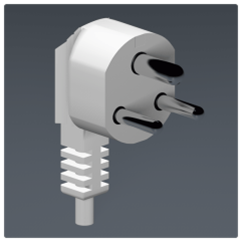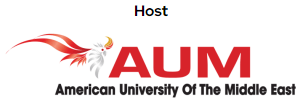Abu Dhabi, the largest emirate in the United Arab Emirates (UAE), boasts a diverse landscape divided into three distinct regions, each offering a unique charm and significance. Abu Dhabi City, situated along the picturesque coast of the Arabian Gulf, stands as the bustling commercial and cultural heart of the emirate. This vibrant metropolis encompasses several islands, such as the renowned Yas Island, a global hub for entertainment, and Saadiyat Island, celebrated for its rich cultural attractions, including the magnificent Louvre Abu Dhabi.
To the east lies Al Ain, a city steeped in history and culture, boasting UNESCO world heritage sites and the imposing Jebel Hafit, the highest peak in Abu Dhabi at 1,240 meters above sea level. Al Ain is a testament to the UAE’s deep-rooted heritage.
Abu Dhabi boasts a warm, sunny climate all-year round. The winter season (December to mid-March) promises perfectly balmy weather with occasional rainfall and an average daytime temperature of 25℃. Summertime (late May to September) sees daytime temperatures soar to a sweltering 45℃ and higher, but this modern city is equipped for the heat with air-conditioning everywhere and plenty of indoor entertainment on offer.
Arabic is the official language of government and business in the UAE, while English is widely used. Most road and storefront signs are written in both English and Arabic. Hindi, Urdu, Bengali, Malayalam, Tamil, Tagalog, Persian, and Chinese are also spoken.
Since January 2022, the UAE adopted a Monday to Friday working week to better align the UAE economy with international markets. The designated weekend in the UAE is now Saturday to Sunday. Usual business hours are 7.30 am to 3.30 pm from Monday to Thursday, and from 7.30 am to 12.00 pm on Fridays.
During Ramadan the working day may be shorter Free Zones may also have different working hours.
The local currency is the UAE dirham (AED or Dhs) which is divided into 100 fils and is pegged against the US dollar (US$ 1: AED 3.67). Notes come in denominations of 5, 10, 20, 50, 100, 200, 500 and 1,000 dirhams.
Credit and debit cards are widely accepted. Foreign currencies and travelers’ checks can be exchanged in licensed exchange offices, banks and hotels, a passport is required. Personal checks can be a bit trickier, and many places won’t accept them. If you’re shopping in the souks (markets) or in smaller shops, cash is the best option. It is worth taking a combination of cash and credit cards.
In Abu Dhabi, tipping is a customary practice, though not obligatory. When it comes to gratuities for hotel and restaurant staff, the decision is entirely at your discretion. It’s important to note that many upscale dining establishments may include a service charge, typically around 10%, and a 6% tourism levy in your bill, which are often already factored into the menu prices, clearly indicated as such. However, if you’ve received exceptional service and wish to express your appreciation further, it’s not uncommon to leave an additional tip on top of these included charges. In cases where these fees aren’t automatically added, a gratuity of 10-15% is generally appreciated and a courteous way to acknowledge outstanding service.
As Islam is a way of life in the city, tourists should adopt a certain level of cultural and religious sensitivity for the duration of their stay. While dress codes are fairly liberal, swimwear should only be worn on beaches or at swimming pools, and when visiting shopping malls and other attractions, tourists should wear clothing that is not too tight or revealing.
For ladies, please avoid wearing low-cut dresses or dresses or skirts above the knee. Sleeveless garments are not encouraged. Please bring along a scarf while visiting the mosque. Men are also discouraged to wear singlets or unbuttoned shirts.
When exploring Abu Dhabi, maximizing your time and experiencing its world-class attractions is undoubtedly a priority. Fortunately, a multitude of transportation options are at your disposal to seamlessly connect you to your desired destinations. Whether you prefer the convenience of taxis, the accessibility of buses, or the flexibility of rental services, Abu Dhabi offers a well-structured transportation network to cater to your needs.
By Taxi
Whether you’re arriving at the airport or exploring the city’s attractions, you’ll find that taxis are readily available. Hailing a taxi is as simple as raising your hand on the street, but for added convenience, you can utilize the Abu Dhabi taxi app, compatible with both iOS and Android platforms. This user-friendly app allows you to request a taxi within a mere 10-minute window from your current location, offering options for larger vehicles to accommodate families or wheelchair-friendly vehicles to cater to individuals with special needs. For those seeking further flexibility, popular on-demand ride-hailing services such as Uber and Careem operate seamlessly in Abu Dhabi, ensuring round-the-clock access to transportation solutions.
By Bus
Abu Dhabi Shuttle Bus: These air-conditioned and wheelchair-accessible buses follow a well-organized network of eight key routes, making frequent stops at some of the emirate’s most iconic hotels, landmarks, and attractions. The Experience Abu Dhabi Shuttle Bus is available to both local residents and international tourists, offering a hassle-free experience. All you need to do is hop on at any designated stop and scan the QR code.
Public Buses: An economical and accessible way of transportation, operating seamlessly around the clock to cater to passengers’ diverse schedules and needs. To facilitate payment for your bus journey in the city, the Hafilat Smart Card comes into play. Translating to ‘buses’ in Arabic, the Hafilat Smart Card is a pre-paid card designed for effortless use on all public buses, allowing passengers to easily scan in and out of their trips. Acquiring and activating this convenient card is a straightforward process, with the flexibility to purchase it at various locations including bus stations, shopping malls, and convenience stores scattered across the city. The Hafilat Smart Card mandates a minimum initial load of 10 AED, with each bus journey incurring a fare of 2 AED along with an additional charge of 5 fils per kilometer traveled, ensuring a cost-effective and efficient means of traveling in Abu Dhabi.
Travelling between Abu Dhabi and Dubai: Traveling from Abu Dhabi to Dubai is made effortless and cost-effective thanks to the UAE’s highly efficient transportation system. One convenient option is to hop on the Abu Dhabi to Dubai bus, with services including the E100 and E101 departing from the Central Bus Station, as well as the E102 service from Mussafah Shabiya Bus Station. These buses whisk you to central destinations in Dubai, offering a budget-friendly fare of 25 AED, making it an accessible choice for travelers. Alternatively, you can opt for a taxi ride from Abu Dhabi to Dubai, easily booked through the Abu Dhabi taxi app or other on-demand ride-hailing applications. While taxi fares can vary, you can generally expect to pay between 200 AED to 300 AED for this convenient and comfortable mode of intercity transportation.
Passengers are only permitted to bring certain items, such as liquids, gels, pastes, lotions, creams and drinks past the security checkpoint if they are in containers with a capacity of 100ml or less. All the containers must be carried in a transparent, re-sealable plastic bag. Exemptions are made for medications, baby food and special dietary requirements. Other items considered dangerous, such as aerosols, potential weapons and flammable materials, are also not permitted past this point. You should check the customs regulations of your destination country before departure too. For more information on Custom Clearance, please CLICK HERE.
Abu Dhabi is the capital of the United Arab Emirates (UAE), and stands as the largest of the Seven Emirates. Nestled at the crossroads of the Arabian Gulf, it shares its borders with the Kingdom of Saudi Arabia, the Sultanate of Oman, and the shimmering Arabian Gulf. Its vast expanse covers 67,340 square kilometers (26,000 square miles), constituting a staggering 87 percent of the entire UAE’s landmass.
While Islam is the official religion of Abu Dhabi, the emirate is well-known for its tolerance and respect for all religions. The Islamic holy day is Friday and there are five pillars of Islam, which all Muslims must follow: the Profession of Faith, Prayer, Charity, Fasting, and the Pilgrimage to Makkah. Besides mosques, the city houses many other places of worship including churches and temples. Visitors and residents are expected to respect Islam and abide by certain etiquette and code of conduct, including the special rules that come into effect during the holy month of Ramadan. Most of the official public holidays are based on the Islamic calendar.
Abu Dhabi local time is Gulf Standard Time; GMT/UCT + 4 hours. There are no daylight-saving adjustments.
Bank opening hours are Monday to Saturday 8.00 am to 3.00 pm and Friday 7.30 am to 3.30 pm. Banks are closed on Sundays.
Voltage is 220 – 240 V at 50 Hz AC. British-style 3 pin electrical plugs are used.

Abu Dhabi’s hospitals can handle any medical emergency; it is sensible to ensure you have adequate travel insurance that covers you for healthcare. If you have a medical condition that requires ongoing treatment, be sure to bring enough medication with you to last you for your entire stay in Abu Dhabi. However, you are advised to bring a medical certificate with you sanctioning the use of such medications, since certain substances are banned.
In a medical emergency, Abu Dhabi’s Sheikh Khalifa Medical City (+971 2 819 0000) and Mediclinic Al Noor Hospital (800 2000) both have Accident and Emergency units. If you’re injured in a traffic accident, you will automatically be taken to Sheikh Khalifa Medical City, as it has the best A&E treatment facilities.
The Abu Dhabi Government portal provides an updated list of 24-hour pharmacies and medical services, including hospitals, clinics, and medical centres. If you don’t have internet access, you can call the toll-free number 800 555 (+971 2 666 4442).
Sheikh Zayed Grand Mosque: As one of the largest mosques in the world, it stands as a testament to the visionary ideals of Sheikh Zayed bin Sultan Al Nahyan, the esteemed Founding Father of the UAE. His dream was to forge a place that would serve as both a sanctuary and a cultural beacon, inspiring and uniting people from all corners of the globe, fostering a deeper appreciation of religion, and celebrating the rich tapestry of Emirati culture.
Emirates Palace Mandarin Oriental Abu Dhabi: Emirates Palace, Mandarin Oriental Abu Dhabi, stands as a testament to opulence, exceptional service, and unparalleled culinary experiences within an enchanting ambiance. This architectural marvel appears as if plucked from the pages of an Arabian fairy tale, with its main edifice extending over a remarkable one-kilometer span, and lush gardens sprawling across a vast 100 hectares. As you step inside, a profound sense of tranquility washes over you, enhanced by the presence of a pristine 1.3-kilometer private beach, captivating pools, a secluded marina nestled in a natural bay, a world-class spa, and a collection of highly acclaimed dining venues.
Louvre Abu Dhabi: Step into the magnificent Louvre Abu Dhabi, a groundbreaking institution that holds the distinction of being the first universal museum in the Arab World, exemplifying and nurturing a sense of cultural openness and exchange. Nestled within the vibrant Saadiyat Cultural District on Saadiyat Island, this extraordinary museum is a sanctuary for art aficionados. Within its hallowed halls, visitors are transported on a journey through time, as it showcases an exquisite collection of artworks, each bearing profound historical, cultural, and sociological relevance, spanning from the ancient epochs to the vibrant tapestry of the contemporary era.
For more information on visa issues, please CLICK HERE.
When calling the emergency number, please remember to state your name, the nature of the accident, address of the emergency and how serious the situation is.
If you are involved in a traffic accident, it’s important to contact the police immediately. In case of a minor incident, move your car to the side of the road, as there are fines for obstructing traffic. You cannot file an insurance claim without a police report.
Vital Emergency Numbers in Dubai
Police 999
Ambulance 998
Air Ambulance 999
Other emergency numbers
Fire Emergency 997
Marine Emergencies 996
Electricity emergencies – Abu Dhabi 991
Water emergencies – Abu Dhabi 992
Water and electricity emergencies – Al Ain 800 9008
Emergencies Office in the Municipality of Abu Dhabi, Al Ain and Al Dhafra 993
Weather condition and earthquakes emergencies +971 2 666 7776
Customer Protection 800 555
The Centre for Regulation of Transport by Hire Cars (TransAD) 600 535353
Abu Dhabi International Airport +971 2 505 5555
Emergency Services for People of Determination – Text 5999 to report accidents or anything that might disrupt the security and public order.

